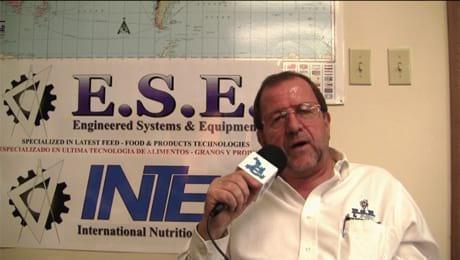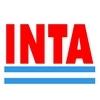Check out what is new in Animal Feed
Find the best technical articles, forums, and videos on Animal Feed at Engormix. Enter now and interact with the world's largest agricultural social network.
INTRODUCTION Among the essential amino acids (AA), L-arginine (ARG) is one of the functional amino acids in animals. ARG is a nutritionally very important and essential AA for fish, and is considered the fourth limiting AA in aquafeed. Most of fish species excretes ammonia predominantly through the gills, diffusing NH 3 or NH 4 (ammoniotelic animals). Therefore, unlike mammals, fish have a low hepatic activity of carbamoyl phosphate synthase III or ornithine carbamoyl...
Comments : 0
Recommendations: 1
I. INTRODUCTION Crude protein-reduced broiler diets have the potential to provide tangible advantages in respect of economics, bird welfare, flock health and the environment. Moderate reductions in dietary crude protein (CP) levels can be achieved without compromising broiler performance when coupled with judicious synthetic amino acid inclusions. However, there appears to be a threshold where further CP reductions negatively influence performance, especially FCR and this is...
Comments : 0
Recommendations: 1
Introduction Parasites have long been neglected but nowadays are becoming more recognized as important foodborne pathogens. Various factors contribute to their undervaluation such as complex lifecycles and transmission routes, prolonged incubation period and chronic disease manifestations. In addition, rapid and sensitive diagnostic assays are not always available and therefore parasite occurrences are often underreported, resulting in low disease...
Comments : 0
Recommendations: 0
Introduction
Toxoplasmosis is an important foodborne disease worldwide. Its public health importance has been largely under-recognized, but recent evidence has shown that Toxoplasma gondii leads to a high burden of disease at global, regional and national level. The World Health Organization ranked toxoplasmosis as number 13th among 31 foodborne diseases globally, also demonstrating regional differences, with for example a relative...
Comments : 1
Recommendations: 0


The True Future of the Agribusiness and Livestock Sector in 2026
Suggested link
by Sam Shafer
When it comes to poultry feed, particle size makes a big difference for bird nutrition.
Research shows that chickens increase their feed intake and performance when given pelleted feed or crumbled pellets, compared with mash.
This has led researchers to wonder whether feeding crumbles could jumpstart very early chick growth and boost final broiler body weights. It is important to study this question because pellets and crumbles are more...
Comments : 0
Recommendations: 0
by Sam Shafer
Properly cooking poultry products is key to avoiding bacterial infections such as Campylobacter, so there are concerns that the recent popularity of undercooked chicken livers, often served as a pâté, could lead to foodborne illnesses.
Poultry scientists are curious whether the same concern is relevant for turkey livers—an important question as turkey consumption continues to grow in the United States.
To better...
Comments : 0
Recommendations: 0
.jpg&w=3840&q=75)

From waste to resources: A successful model of biocircular economy
Suggested link
Background Recently, a comprehensive review paper devoted to roles of nano-Se in livestock and fish nutrition has been published in the Nanoscale Research Letters [1]. The authors described in great detail an issue related to nano-Se production and its possible applications in animal industry and medicine. Indeed, it is well established that many molecules presented as nanoparticles have unusual behaviour due to the new properties of such particles. In fact, in most of the...
Comments : 0
Recommendations: 0
...
Comments : 0
Recommendations: 0


Updated Vitamin Requirements Across Species: Microvit® Nutrition Guide
Suggested link
This article will make a similarity of both companies from the perspective of the meat byproducts rendering plants. Walmart is the largest and most successful retail company in American history and Kmart was its direct competitor in its early days. Walmart focused on improving its process not only in technology, but it also trained its employees so that they understood the importance of reducing costs without deteriorating the quality and their service, focusing in details. Kmart invested in...
Comments : 0
Recommendations: 1
ABSTRACT Poultry diets are formulated primarily using cereals and protein meals (corn, wheat and soybean meal) as the main ingredients. There is noted shift in using coproducts from cereals and oilseeds in poultry diets due to availability and relatively lower cost. However, there is wide variation in the nutritional values of both conventional feedstuffs and coproducts, which creates a necessity of developing routine...
Comments : 0
Recommendations: 1
Introduction In swine industry, the weaning transition is a complex period during which the piglets have to cope with abrupt separation from their dam, mixing with other litters in a usually new environment and switch from highly digestible feed (milk) to a less digestible more complex solid feed; hence weaning is a stressful experience for the piglets involving nutritional, psychological, environmental, microbiological, and immunological stresses (Lalles 2008), which could...
Comments : 0
Recommendations: 1
...
Comments : 0
Recommendations: 1


The True Future of the Agribusiness and Livestock Sector in 2026
Suggested link
INTRODUCTION Saccharomyces boulardii as a probiotic yeast “Probiotics” were first conceptualized at the start of the 20th century by Elie Metchnikoff’s discovery of the immunological benefit of lactic acid bacteria in fermented milk. Today, lactobacilli and bifidobacteria are among the most important and widely consumed probiotics (Table 1). Species from other bacterial genera such as Escherichia, Bacillus and Enterococcus have...
Comments : 0
Recommendations: 1
1. Introduction In commercial dairy and beef production, a range of stresses are responsible for economic losses associated with the decreased productive and reproductive performance of cows. It has been shown that at the molecular level, nutritional, technological, environmental and internal stresses lead to the overproduction of free radicals, the disturbance of the redox balance, and oxidative stress [1,2]. It is well known that oxidative stress (an imbalance between free...
Comments : 0
Recommendations: 1
.jpg&w=3840&q=75)

From waste to resources: A successful model of biocircular economy
Suggested link
Introduction Silver has long been known to exhibit a strong toxic activity towards a wide range of microorganisms, for this reason silver based compounds have been extensively used in many bactericidal applications. Nano particles due to their large surface area are highly reactive and Ag Nano particles have been tested in various fields of biological sciences, Viz drug delivery, wound treatment, binding with HIV gp120 protein , in water treatment and as antibacterial compound...
Comments : 0
Recommendations: 0
Background Investigations in reducing dietary crude protein (CP) in chickens began in the early 1940’s, which commenced nearly a century of exploration in this area of poultry nutrition research. Advances have been made, but many of the hurdles identified in the 1940’s vex poultry nutrition researchers today. Most notably, in the early 1940’s research was carried out in chickens fed various diets substituted with ingredients differing in protein and energy...
Comments : 1
Recommendations: 4


Updated Vitamin Requirements Across Species: Microvit® Nutrition Guide
Suggested link
Due to the projections of accelerated growth of world population, it is essential to increase the production of proteins from animal and plant origin. Insects have been used as an alternative protein source for humans (entomophagy) and other animals because of their greater efficiency in food conversion and less environmental impact (Van Huis et al. 2013, Van Huis 2013, Van Huis 2020). Edible insect larvae contain an average of 54% protein, including essential amino acids and vitamin...
Comments : 0
Recommendations: 0
Introduction Salmonella is a major foodborne pathogen commonly associated with raw poultry and poultry products causing 1.2 million illnesses, 23,000 hospitalizations and 450 deaths, annually in the United States [1]. Between 2009 and 2015, 15% of the top 5 pathogen-food category pair out-breaks were attributed to Salmonellosis associated with chicken consumption [2]. To reduce the prevalence of Salmonella , poultry processors apply antimicrobial...
Comments : 0
Recommendations: 0
1. Introduction Avena sativa, commonly known as oats, is a cereal belonging to the Poaceae grass family that has traditionally been used as animal feed, particularly for horses and dairy cows. In recent years, the beneficial nutritional and physiological effects of oat products have generated an increase in nutrition-conscious consumer demand. The characteristic feature of oat grains is the favourable profile of amino acids, vitamins, minerals, and essential unsaturated...
Comments : 0
Recommendations: 0
Summary: - A growing population that we have to feed by 2050, approximately 9,000 million inhabitants. - Climate change, global warming, atmospheric phenomena (Hurricanes, floods, prolonged drought that drastically affects grain crops). - Overfishing in our seas that are decimating and extinguishing some marine species. ...
Comments : 0
Recommendations: 1






























